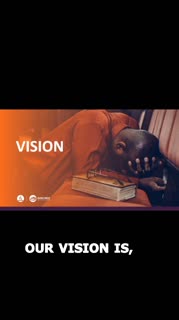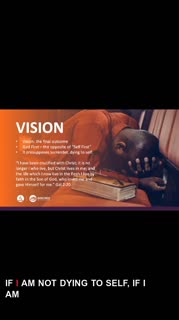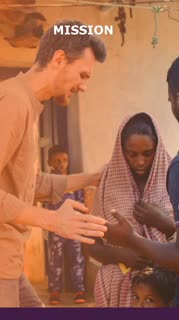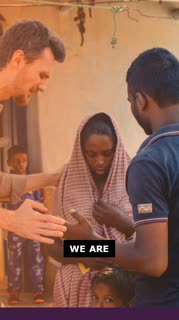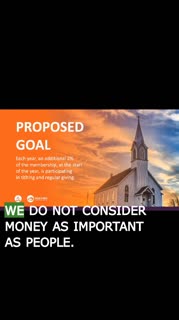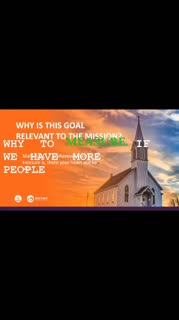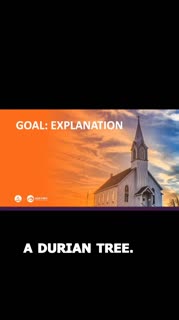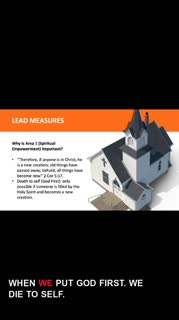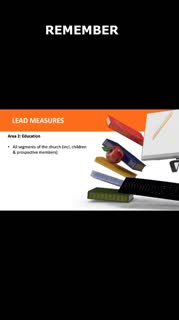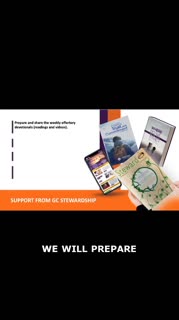Stewardship: Trusting God Through Vision and Education
Devotional
Sermon Summary
Bible Study Guide
Sermon Clips
1) "Our vision is, in the GC, is people putting God first. This is our vision. Our vision. Our vision is people putting God first. And let me ask you something. Why this vision is important? Another question I would like to ask you, for you to think is, what is the opposite of putting God first? You may answer. You may answer." [04:44] (37 seconds)
2) "If I am not dying to self, if I am unable, if I have not died to self, I will not give anything to God. I will not give my family to God. I will not give my time to God. I will not wake up earlier to have my personal communion with God. I will not keep the Sabbath accordingly. I will not follow the health reform. And I will not even give my tithe and my offerings. Because I am unable to put God first." [07:35] (37 seconds)
3) "Our mission is inviting members to trust God as owner and provider. And to partner in his final mission through regular and systematic giving. Mission is what we as a department will do to reach the vision. The final result. The vision is the final result. So, what we will do as a department. As a department, our work, our task is to invite members to trust God as owner and provider." [08:42] (38 seconds)
4) "We are partnering with God. We say to God, God, I believe You are sustaining me. You are the provider. You are helping me to live. And so, from everything You give me. I will return my tithe in regular and systematic offering. This is a kind of partnership. And is a kind of partnership in which I have the biggest advantage. God is not benefited because He already owns everything. But He is the provider of all. He gives to me." [11:37] (36 seconds)
5) "We do not consider money as important as people. Right? So, for us people are far more important than money. And that's why we have decided in the GC stewardship department. That our goal must be based on people and not on money. That's why that suggested goal is to have each year an additional 2% of membership. An increase of the membership at the start of the year. Participating in tithing and regular giving." [15:11] (44 seconds)
6) "Why to measure. If we have more people participating. In tithing and giving promise. Well because. Wherever their treasure is. Their heart will also be. And we would like to invite people. To trust God. To put God first. And the final outcome. Is to have all our membership. Trusting God. And putting God first. And this is a way to. Encourage them." [17:04] (33 seconds)
7) "When you go to a durian tree. Which are the fruits. You get first. You get first. The low hanging fruits. That are closer to you. Because they are easier. For you to get. And in our work. We should do the same thing. We start for the easiest part. And let me suggest you. That the easiest part. To work in your field. Is to. Invite those who are. Tithing. And giving promise. Once in a while. And inviting them to become. Regulars." [24:08] (43 seconds)
8) "When we put God first. We die to self. Self is no longer first. And. It's only possible. Death to self is only possible. If someone is filled by the Holy Spirit. And becomes a new creation. When Christ. Is in me. I no longer live. Right. I am dead to myself. Because Christ lives in me. He will decide. With whom I will marry. He will decide. What I will do." [31:38] (34 seconds)
9) "Remember that. By giving tithes. And promise. We are not. Our goal. Is not to get more money. To the church. Our goal is to encourage. People to trust God. Trust more God. Trust God more. To exercise trust in God. So we should start. Working with children." [34:08] (25 seconds)
10) "We will prepare and share. The weekly offertory devotionals. The readings. And the videos. I hope all of you. Are already able to. Translate in your local churches. We are producing. One video. For each. Sabbath of the year. To be presented in local churches. Before the offering collection. You will have. The videos in English. But you are. We already have in several languages. But they may be translated. At no cost." [51:42] (38 seconds)
Ask a question about this sermon
2) "If I am not dying to self, if I am unable, if I have not died to self, I will not give anything to God. I will not give my family to God. I will not give my time to God. I will not wake up earlier to have my personal communion with God. I will not keep the Sabbath accordingly. I will not follow the health reform. And I will not even give my tithe and my offerings. Because I am unable to put God first." [07:35] (37 seconds)
3) "Our mission is inviting members to trust God as owner and provider. And to partner in his final mission through regular and systematic giving. Mission is what we as a department will do to reach the vision. The final result. The vision is the final result. So, what we will do as a department. As a department, our work, our task is to invite members to trust God as owner and provider." [08:42] (38 seconds)
4) "We are partnering with God. We say to God, God, I believe You are sustaining me. You are the provider. You are helping me to live. And so, from everything You give me. I will return my tithe in regular and systematic offering. This is a kind of partnership. And is a kind of partnership in which I have the biggest advantage. God is not benefited because He already owns everything. But He is the provider of all. He gives to me." [11:37] (36 seconds)
5) "We do not consider money as important as people. Right? So, for us people are far more important than money. And that's why we have decided in the GC stewardship department. That our goal must be based on people and not on money. That's why that suggested goal is to have each year an additional 2% of membership. An increase of the membership at the start of the year. Participating in tithing and regular giving." [15:11] (44 seconds)
6) "Why to measure. If we have more people participating. In tithing and giving promise. Well because. Wherever their treasure is. Their heart will also be. And we would like to invite people. To trust God. To put God first. And the final outcome. Is to have all our membership. Trusting God. And putting God first. And this is a way to. Encourage them." [17:04] (33 seconds)
7) "When you go to a durian tree. Which are the fruits. You get first. You get first. The low hanging fruits. That are closer to you. Because they are easier. For you to get. And in our work. We should do the same thing. We start for the easiest part. And let me suggest you. That the easiest part. To work in your field. Is to. Invite those who are. Tithing. And giving promise. Once in a while. And inviting them to become. Regulars." [24:08] (43 seconds)
8) "When we put God first. We die to self. Self is no longer first. And. It's only possible. Death to self is only possible. If someone is filled by the Holy Spirit. And becomes a new creation. When Christ. Is in me. I no longer live. Right. I am dead to myself. Because Christ lives in me. He will decide. With whom I will marry. He will decide. What I will do." [31:38] (34 seconds)
9) "Remember that. By giving tithes. And promise. We are not. Our goal. Is not to get more money. To the church. Our goal is to encourage. People to trust God. Trust more God. Trust God more. To exercise trust in God. So we should start. Working with children." [34:08] (25 seconds)
10) "We will prepare and share. The weekly offertory devotionals. The readings. And the videos. I hope all of you. Are already able to. Translate in your local churches. We are producing. One video. For each. Sabbath of the year. To be presented in local churches. Before the offering collection. You will have. The videos in English. But you are. We already have in several languages. But they may be translated. At no cost." [51:42] (38 seconds)
